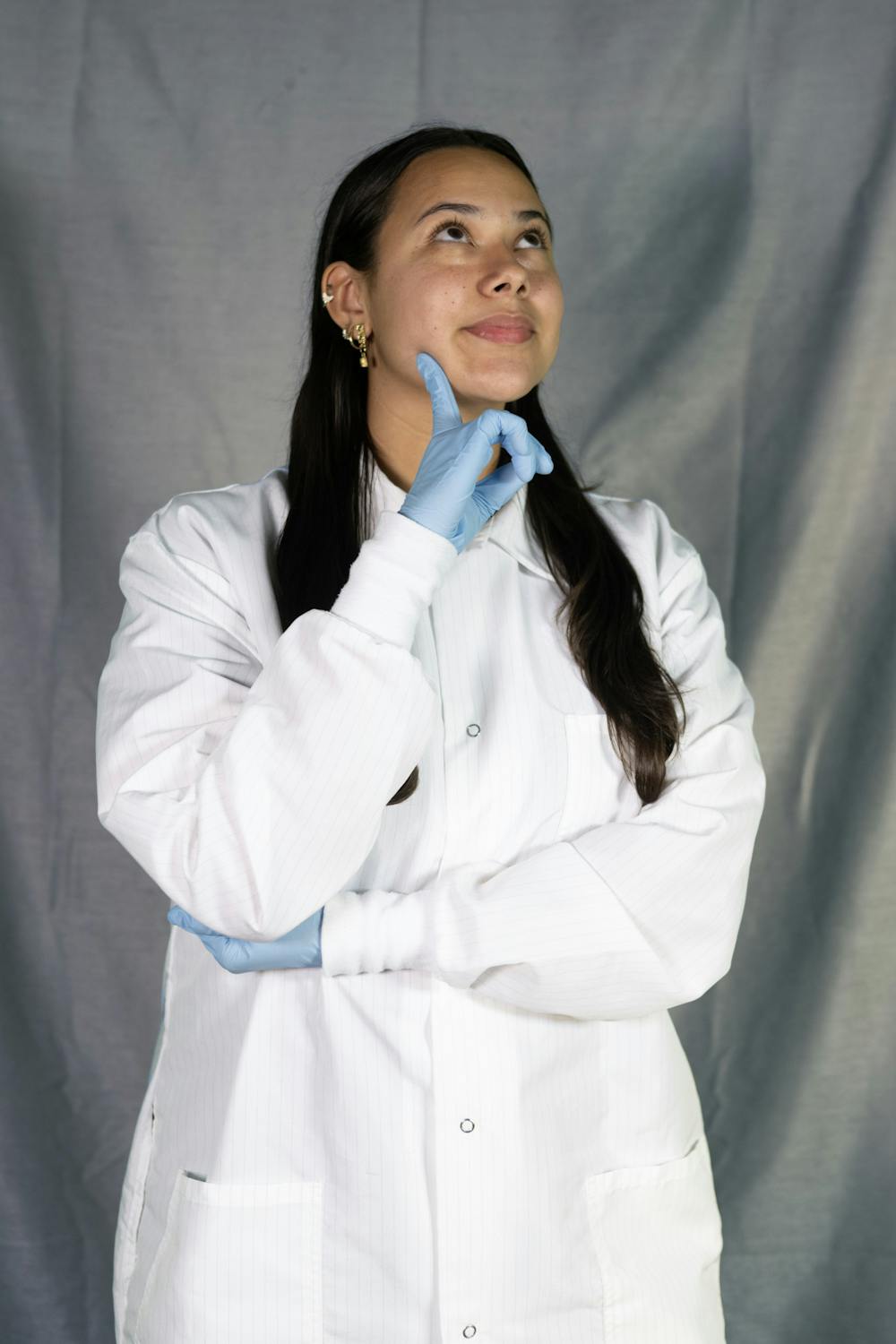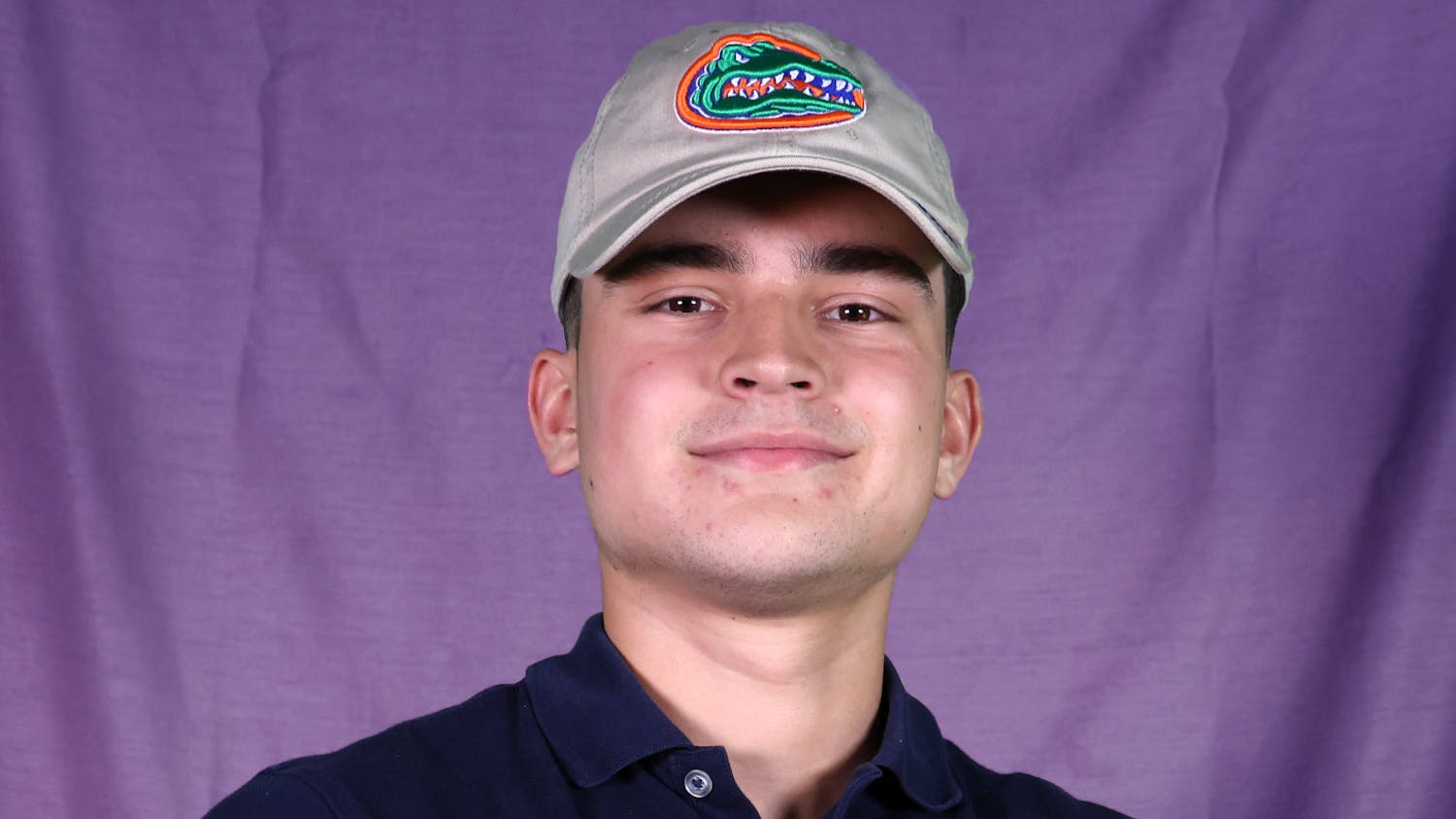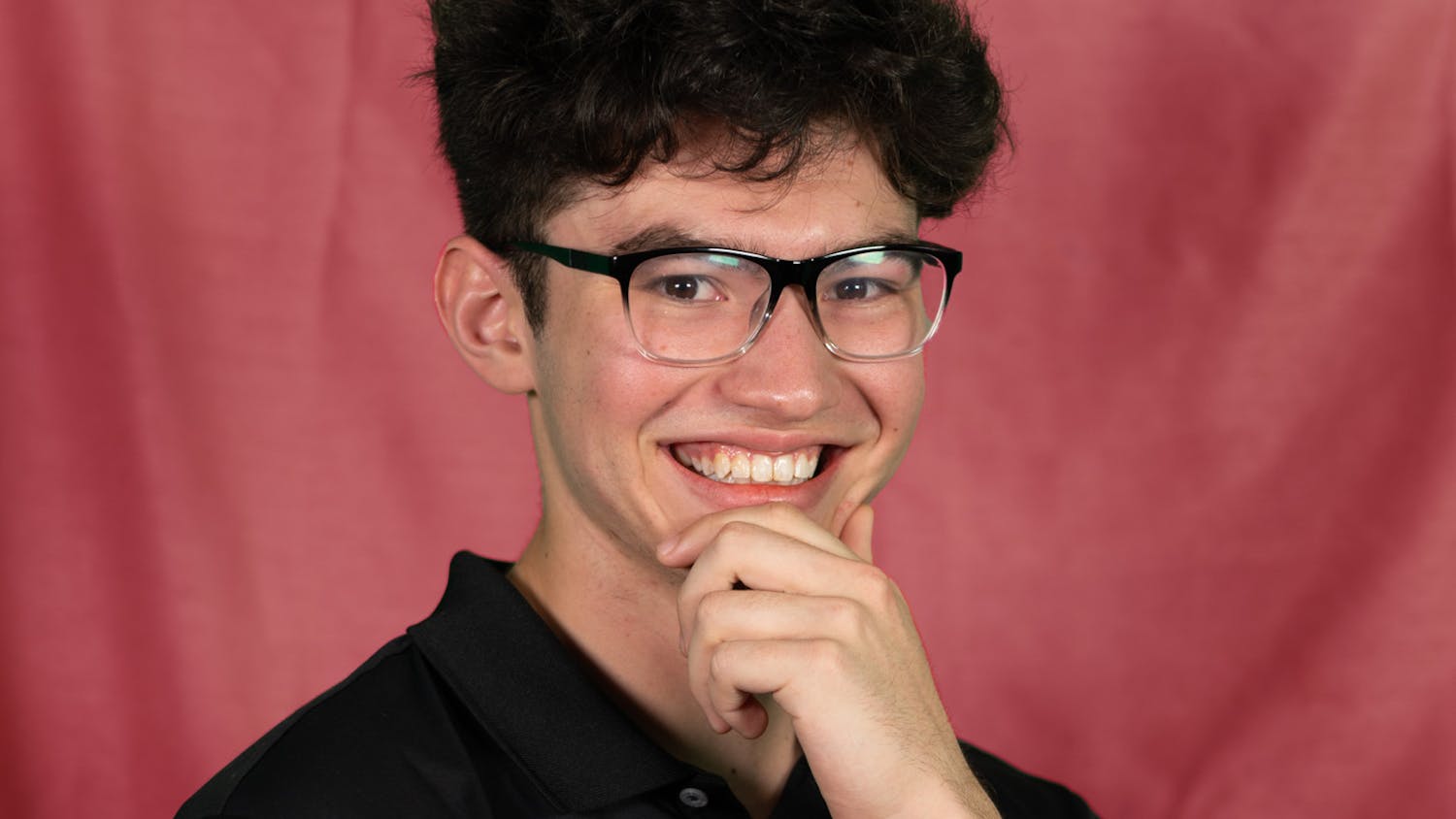See all stories published in the 25 under 25 special edition here.
For Stephanie Manrique, every blueprint and project doubles as a design for a more inclusive future in engineering.
Manrique, a 21-year-old UF biosystems engineering senior, has been immersed in research since she arrived at UF. Her struggle to navigate a male-dominated field as a Hispanic woman drove her to shape engineering into a space where others can belong, she said.
The young Colombian American engineer once dreamed of becoming a doctor. She now recognizes that dream was shaped by the pressure of being a first-generation student. Growing up, she thought success could only come through law or medicine, she said.
“My parents moved here so that we could, you know, get a better education,” she said. “For a while that was a big weight to carry, but … I realized it’s not like a burden as much as it is just a motivation.”
Engineering allowed Manrique to see the variety contained within the scientific world, shifting the future she envisioned. A job in engineering can “make every day look different,” she said. That dynamism captured her.
During her freshman year, Manrique cold-emailed professors until she landed her first research opportunity at the UF College of Pharmacy, where she worked on a 3D bioengineered skeletal muscle system. Her project focused on improving drug testing to support therapies for sarcopenia, the age-related loss of muscle mass in older adults.
At first, she wrestled with impostor syndrome — the fear of not deserving her accomplishments. But her persistence helped her adopt a new mindset: “If it doesn’t work out, it doesn’t work out.”
“She is definitely very inquisitive, … always looking for what’s next,” said Esteban Bermúdez, Manrique’s graduate research assistant at UF.
Manrique later joined the UF Department of Chemical Engineering to develop better materials to repair damaged nerves. Her skills carried into her internship at Medtronic, where she ensured the reliability of medical devices.
Even with these achievements, Manrique has felt the challenges of navigating a male-dominated field — not only as a woman, but as a Hispanic woman.
Many Hispanic women “shy away from STEM” because of a lack of representation and resources, she said. But moments when her voice felt smaller than her white male peers, she said, fueled her determination to rewrite that narrative.
That motivation extends into her role with the Society of Hispanic Professional Engineers. As vice president, she has helped launch the chapter’s first research team, mentoring peers on literature reviews and presentations. She also leads workshops for underclassmen on applying for research positions, managing projects and building professional networks.
“It is so much more impactful when you’re working together than if you were all working separately,” Manrique said.
Her goal is to increase the number of Hispanic undergraduates involved in research while cultivating “a home away from home.”
“We call it a familia,” she said.
Contact Ariana Badra at abadra@alligator.org. Follow her on X @arianavbm.
Ariana is a first-year journalism major and an El Caimán reporter for the Fall of 2025. In her free time, she enjoys reading, spending time with friends and scouring for new songs to play on repeat to an absurd degree.






